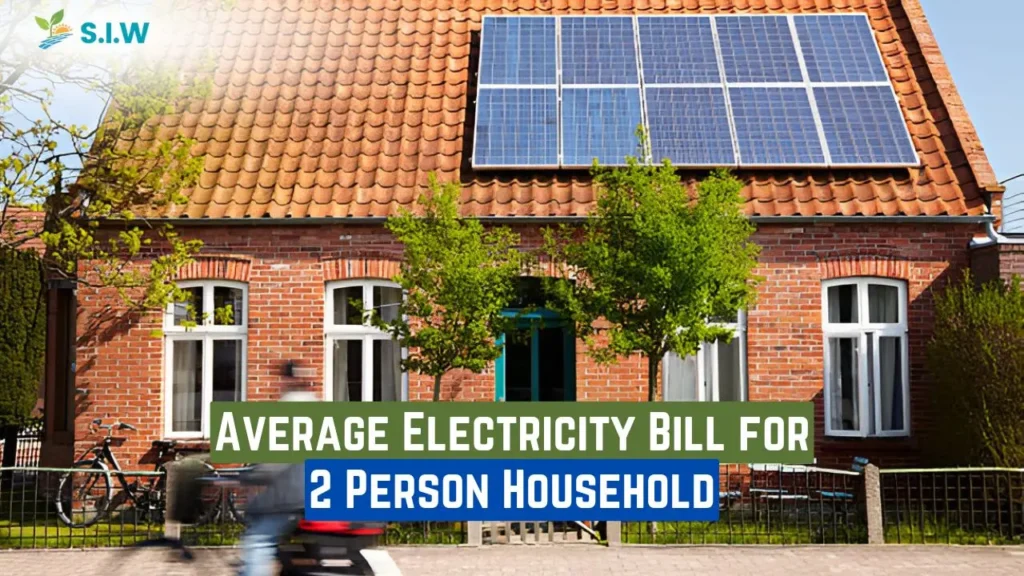Electricity bills can be a headache, right? For a 2-person household, knowing how much electricity you’re using and what to expect on your monthly bill is essential. Whether you’re trying to budget better or considering going solar, understanding the key factors influencing your bill helps you stay ahead. Let’s dive in and explore what contributes to your monthly costs and how solar power could be the game-changer you’ve been looking for.
Factors Affecting Electricity Bills in a 2-Person Household
Your electricity usage depends on many factors, from the size of your home to how you heat or cool it. Let’s break it down.
Home Size and Layout
A small apartment? Your bill will likely be lower than that of a couple living in a sprawling suburban house. Larger spaces need more energy to stay comfortable, especially if you’re running air conditioning or heating all day.
Climate and Seasonal Variations
If you live in a place with hot summers and freezing winters, your bill will fluctuate with the seasons. Air conditioning spikes summer bills, while heating does the same in winter.
Appliances and Their Impact on Electricity Consumption
Ever wonder which devices make your bill skyrocket? Some household appliances are more energy-hungry than others.
High-Energy Appliances
Washing machines, dryers, and air conditioners are some of the worst offenders. Running these frequently can quickly push up your energy bill.
Phantom Energy
Many devices consume power even when turned off, thanks to standby mode. Unplugging them when not in use or using a power strip can help cut costs.
How Much Electricity Does a 2-Person Household Typically Use?
National Average
The average American household consumes around 900-1,000 kWh per month, but two-person homes generally use closer to 500-600 kWh per month.
Differences by Region
If you live in a rural area, your energy consumption might be higher due to reliance on electric heating. City apartments may use less thanks to shared walls that help with insulation.
Calculating Your Monthly Electricity Bill
Understanding kWh Rates
Electricity providers charge based on how much energy you use, measured in kilowatt-hours (kWh). Some areas offer tiered rates, meaning the more you use, the higher the per-kWh cost.
How Utility Providers Calculate Bills
Most bills include a base charge, usage fees, and sometimes surcharges for peak usage. Knowing how these add up helps you budget better.
Solar Power as a Solution for Rising Electricity Bills
Benefits of Solar Energy
Solar panels generate free energy from the sun, helping reduce or eliminate your monthly bill. Plus, you may qualify for federal and state tax credits that make installation more affordable.
Is Solar Practical for a 2-Person Household?
If your household’s electricity consumption is moderate, a small solar setup could easily cover your needs, especially if you live in a sunny location.
Case Study: Monthly Savings with Solar Panels
Imagine cutting your electricity bill from $150 to just $20 a month. That’s exactly what a couple in California achieved after installing a 5-kW solar system!
How to Maximize Energy Savings at Home
Energy-Efficient Appliances
Switching to ENERGY STAR-rated appliances can save you hundreds annually on electricity.
Smart Home Technology
A smart thermostat lets you adjust the temperature remotely, ensuring you don’t waste energy when no one’s home.
Average Solar Installation Cost vs. Monthly Savings
Upfront Costs
Installing solar panels can cost anywhere from $10,000 to $25,000, but rebates and incentives can reduce this significantly.
ROI and Payback Period
Most homeowners see a full return on their investment within 5-8 years, after which their energy is practically free.
How Weather Affects Solar Panel Efficiency
Performance in Cloudy or Rainy Conditions
Modern panels can still generate power even on cloudy days, though efficiency may drop slightly.
Best Locations for Solar Energy Production
States like California, Arizona, and Florida enjoy the best conditions for solar energy.
Why Solar Power is the Future for Homeowners
With electricity costs rising, there’s never been a better time to consider solar power. Not only does it reduce your energy bills, but it also helps the environment. Whether you live in a small apartment or a suburban home, solar energy offers financial and eco-friendly benefits that can’t be ignored.
FAQs
- How much can solar panels reduce my electricity bill?
Solar panels can eliminate 50-100% of your electricity bill, depending on system size and location. - Is solar energy worth it if I live in a small home?
Yes, even small homes can benefit from solar, especially with rising electricity prices. - Can I still receive a bill after installing solar panels?
Yes, if your panels don’t generate enough power to cover all your needs. - What maintenance do solar panels require?
Minimal—just occasional cleaning and annual inspections. - Are solar panel systems eligible for financing?
Yes, many companies offer loans and financing plans to make solar more affordable.








